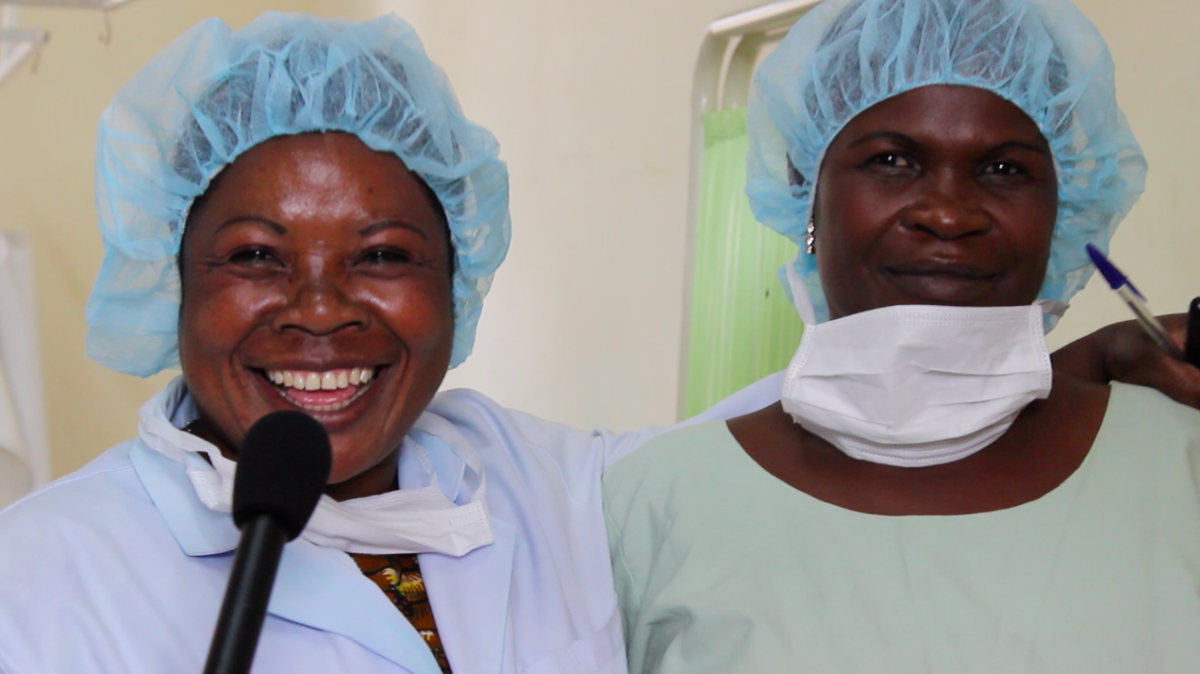
In August 2020, the Nursing and Midwifery Services Department (NMSD) of the Ministry of Heath, Community Development, Gender, Elderly, and Children (MoHCDEC) approved the inclusion of adolescent and youth sexual and reproductive health (AYSRH) content in the midwifery curriculum for all diploma programs by 2022. The three-year midwifery curriculum currently has eleven modules, none of which address reproductive health or AYSRH. The approval will increase the number of nurse midwives who graduate with the skills and confidence to provide quality, youth-friendly information, counseling, and services. An estimated 7,300 nurse midwives graduate every year and go on to provide services at all levels of public and private health facilities, suggesting the curriculum update could have far-reaching impact (1).
Teenage pregnancy is a major health and development concern in Tanzania. Twenty-seven percent of girls between the ages of 15 and 19 are either pregnant or have begun childbearing, and an estimated 8,000 girls in Tanzania drop out of school every year due to a pregnancy (2-4). Contraceptive use among young people 15 to 19 years old is 13% for modern methods, suggesting that access to AYSRH services is an issue for this group (5).
In 2017 Tanzania made a Family Planning 2020 commitment to increase the number of health facilities providing youth-friendly services from 30% (2016) to 80% by 2020. In 2019, an estimated 63% of health facilities were providing youth-friendly services (6); however, only 30% of health service delivery points met national standards for AYSRH (5). At the same time, the pace of training youth-friendly service providers in Tanzania has been slow. Only 57% of the 2,400 providers that were scheduled to receive the current youth-friendly services training in 2019 received training (7).
Advance Family Planning local partner Tanzania Men as Equal Partners in Development (TMEPiD) held advocacy meetings with officials from the NMSD to discuss ongoing AYSRH services challenges. TMEPiD analyzed the midwifery curriculum and identified gaps affecting the delivery of youth-friendly services, particularly the skills and attitudes of nurse midwives. They packaged this evidence into a policy brief and presentation to make the case for the inclusion of AYSRH and youth-friendly services training in the midwifery curriculum. TMEPiD then presented their ask during a meeting with the department team, where it was approved to be included in the 2022 curriculum review and revision.
In the short term, the NMSD Director, Ms. Ziada Sellah, instructed the department to form a task force to develop an addendum to the current curriculum, allowing for earlier access to AYSRH training for current midwifery students. The multi-department task force includes the NMSD assistant director, nursing officers, technical training officers, and reproductive and child health section officers. Ms. Sellah said the ministry’s decision will complement their ongoing efforts to strengthen access to AYSRH services through trained youth-friendly service providers in Tanzania.
Millions of adolescents stand to benefit from improved AYSRH service provision. The increase in AYSRH-trained nurse midwives will contribute towards attaining strategic priority four of the National Family Planning Costed Implementation Plan (NFPCIP II 2019-2023). Priority four focuses on expanding access to age-appropriate sexual and reproductive health information and contraceptives for young people (8). It also supports the achievement of priorities one and two of the National Accelerated Action and Integrated Agenda for Adolescent Health and Wellbeing to expand adolescent access to contraceptive information, services, and supplies (5).
Although in-person meetings and engagements have been delayed due to the COVID-19 pandemic, advocates are optimistic that the curriculum revision will continue despite these setbacks. TMEPiD and Tanzania Youth and Adolescent Reproductive Health Coalition (TAYARH), another Advance Family Planning local partner, will continue to collaborate with the ministry’s task force to develop the addendum in 2021 and support the curriculum revision in 2022. TAYARH is also supporting the ministry to include youth-friendly services training in all pre-service health training curricula by August 2021.
References
- United Republic of Tanzania. 2018. Budget Speech for the Financial Year 2018-19 delivered by the Minister of Health, Community Development, Gender, Elderly and Children, Honourable Ummy A. Mwalimu (MP).
- Ministry of Health, Community Development, Gender, Elderly and Children [Tanzania Mainland], Ministry of Health [Zanzibar], National Bureau of Statistics, Office of the Chief Government Statistician, and ICF. 2016. Tanzania Demographic and Health Survey and Malaria Indicator Survey (TDHS-MIS) 2015-16. Dar es Salaam, Tanzania, and Rockville, Maryland, USA: MoHCDGEC, MoH, NBS, OCGS, and ICF. Retrieved from https://dhsprogram.com/pubs/pdf/FR321/FR321.pdf
- Ministry of Health, Community Development, Gender, Elderly and Children (MoHCDGEC). 2013. Service Availability and Readiness Assessment. Retrieved from http://apps.who.int/healthinfo/systems/datacatalog/index.php/ddibrowser/58/download/179
- United Nations Children’s Fund (UNICEF). 2011. Adolescence in Tanzania. Retrieved from https://www.unicef.org/infobycountry/files/TANZANIA_ADOLESCENT_REPORT_Final.pdf
- United Republic of Tanzania, Ministry of Health, Community Development, Gender, Elderly and Children. National Accelerated Investment Agenda for Adolescent Health and Wellbeing (2019-2022).
- United Nations Children’s Fund (UNICEF). 2019. HIV and AIDS fact sheet. Retrieved from https://www.unicef.org/tanzania/media/2436/file/HIV%20Programme%20Fact%20Sheet.pdf
- Human Rights Watch. 2017. Tanzania: 1.5 Million Adolescents Not in School. Retrieved from https://www.hrw.org/news/2017/02/14/tanzania-15-million-adolescents-not-school
- United Republic of Tanzania, Ministry of Health, Community Development, Gender, Elderly and Children. 2019. Tanzania National Family Planning Costed Implementation Plan (2019-2023) Progress Review. Retrieved from https://tciurbanhealth.org/wp-content/uploads/2019/07/National-Family-Planning-Costed-Implementation-Plan-2019-2023-INSIDE-%E2%80%A2-F....pdf

